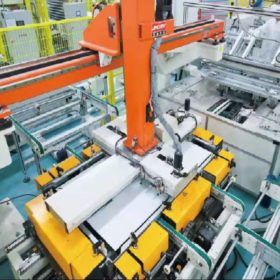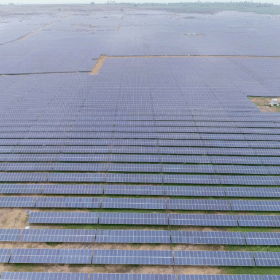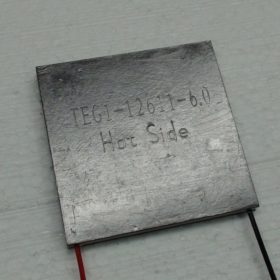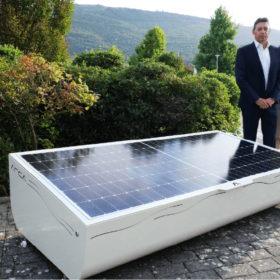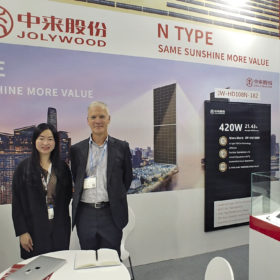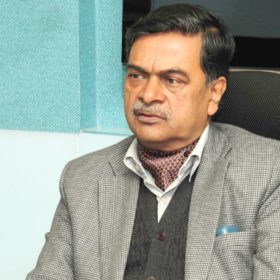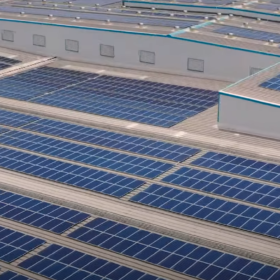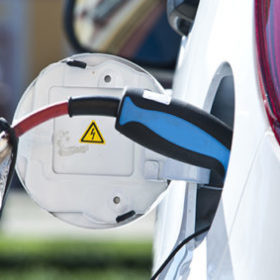Electric mobility sector’s budget wishlist
Players in the electric mobility sector call for a reduction in goods and services tax on electric vehicle (EV) batteries, easy access to low-cost finance for EV buyers, and expansion of FAME Scheme subsidy to ICE-to-EV conversion kits. They also expect the government to enhance the manufacturing capacity and financial layout under the production-linked incentive (PLI) scheme for advanced-chemistry battery cells.
Talesun to supply 250 MW bifacial modules for Rajasthan solar project
The Chinese solar manufacturer has signed a deal with Indian developer Clean Solar Power to supply 250 MW of BIPRO series bifacial modules for a solar project in Rajasthan.
AC Energy and UPC Renewables start work on their largest solar project in India
Philippines-based AC Energy and Hong Kong-headquartered UPC Renewables’ solar energy arm are jointly building a 300 MWac (420 MWp) solar farm in Madhya Pradesh. The plant, when completed, will be the joint venture’s third and largest solar project in India to date.
Coupling photovoltaics with thermoelectric cooling
An international research team has investigated how solar could be combined with thermoelectric coolers (TECs), which are small solid-state heat pumps used either for heating or for cooling. A system was built with six solar panels, an air duct system, four batteries, a charge controller, TECs, an inverter, heat sinks, a test chamber, and condenser fans.
Solar-plus-storage autonomous power generator from Spain
Developed in Spain, the Arca system integrates solar panels, power electronics, and energy storage. Arca Lite has a rated power of 490 Wp, and Arca Plus of 980 Wp.
The long read: Expansions in n-type solar tech
The past 12 months have been a turbulent time for PV manufacturing. Rapid and impressive developments in technology have been accompanied by price increases up and down the supply chain, and energy shortages weighed on production in the second half of the year. Chinese n-type module manufacturer Jolywood is now pressing ahead with ambitious expansion plans despite the disruption. pv magazine publisher Eckhart K. Gouras and editor Mark Hutchins recently caught up with Cathy Huang, European sales director at Jolywood, to discuss the company’s plans to bring n-type TOPCon technology into mainstream production.
India deal to drive Australian hydrogen startup H2X’s global expansion
Australian hydrogen vehicle and fuel cell startup H2X has partnered with Indian automotive parts manufacturer and developer Advik Hi-Tech in a deal which will see the Australian company’s products delivered into India and the wider international market.
Govt may delicense setting up of standalone energy storage systems
Power minister RK Singh recently met with renewable energy developers and industry representatives to discuss the draft Policy on energy storage systems. He informed the participants the government is looking to delicense the setting up of energy storage systems not co-located with renewable energy generation facilities.
ReNew Power sells rooftop solar portfolio to Fourth Partner
The NASDAQ-listed Indian renewable energy developer has sold off its 117 MW/138 MWp of distributed rooftop solar portfolio to Hyderabad-based Fourth Partner Energy for INR 6.72 billion (US$89.9 million), ensuring its increased focus on higher-return, larger-scale projects.
Industry heavyweights look to solid-state battery cells, resources, and recycling
Mercedes-Benz has teamed up with ProLogium to integrate solid-state battery technology into a range of passenger vehicles; Panasonic and Toyota have launched an industrial-academic collaborative research program concerned with battery resources and recycling; and LG Energy Solution plans to spend $2.1 billion with General Motors to build another electric vehicle battery plant in the U.S.

